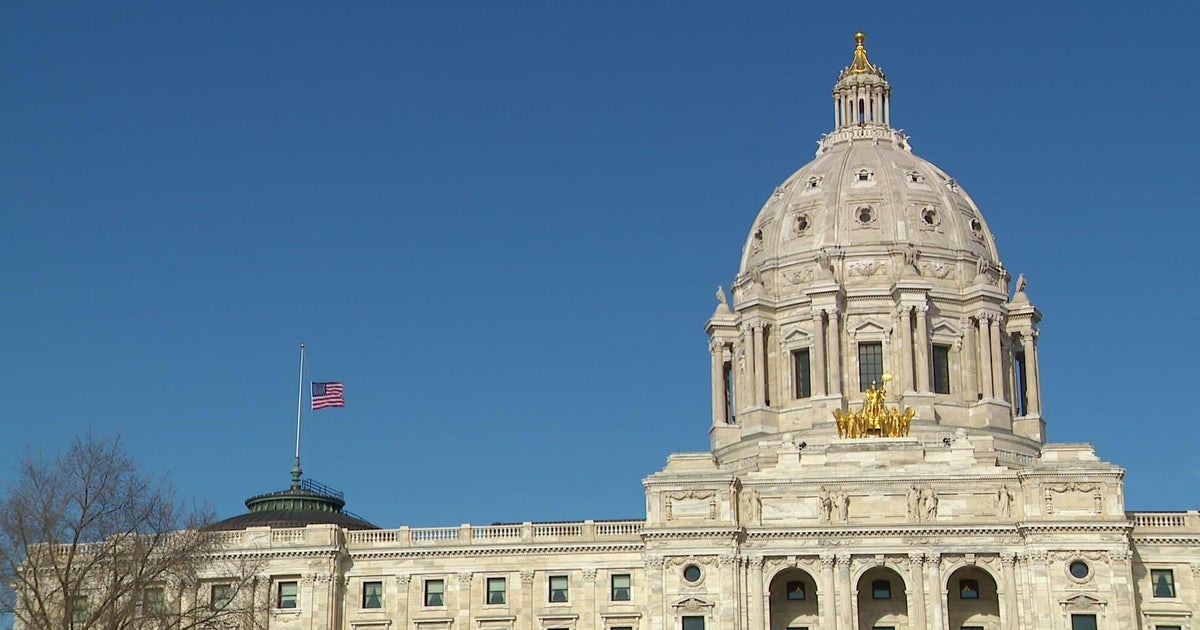States move to front lines in battle over abortion rights with Supreme Court decision looming
Washington — With the Supreme Court poised to issue a decision in the coming months that could reshape the landscape for abortion care in the country, state lawmakers returning to their capitals this month are moving to the front lines in the fight over reproductive rights.
Republican-led legislatures are preparing to impose more restrictions on abortions or ban the procedure outright, while Democrat-controlled state houses are moving to enshrine the right to an abortion into state law. But the future of abortion access is less predictable in states with divided governance, where activists are pursuing a multi-pronged offensive to protect abortion rights in their states.
"We've relied on the veto power these governors have, but we can't rely on one individual alone to safeguard our reproductive rights," Jennifer Driver, senior director of reproductive rights at the State Innovation Exchange, told CBS News of Democratic governors in Michigan, Wisconsin and Pennsylvania — all states which also have Republican-led legislatures.
The Supreme Court is expected to at least weaken Roe v. Wade, the landmark 1973 decision that established the right to an abortion, with its forthcoming decision in a blockbuster abortion case from Mississippi. If the justices allow Mississippi's law banning abortions after 15 weeks of pregnancy to stand, it would give the green-light for states to impose more stringent limits on the procedure.
The Guttmacher Institute, an abortion rights research organization, estimates abortion could be outlawed in up to 26 states if the high court dismantles Roe, and at least 20 of those states already have laws or constitutional amendments in place that either ban or restrict abortion.
In Michigan, Governor Gretchen Whitmer, a Democrat, vetoed in September $16 million in funding for anti-abortion programs. While Whitmer supports abortion rights and proponents view the governor as a crucial backstop to protecting access in the state, the state still has on its books a law criminalizing abortion that preceded the court's 1973 ruling in Roe.
Whitmer called on the Legislature last year to pass a bill repealing the 90-year-old ban, but state Senate Majority Leader Mike Shirkey said in September that Republicans would not support rescinding the 1931 law, according to the Associated Press. Nicole Wells Stallworth, executive director of Planned Parenthood Advocates of Michigan, said the group is examining the statute to identify possible legal grounds to challenge it should the Supreme Court overturn Roe. For now, Roe supercedes the old ban.
In preparation for the decision from the high court, abortion rights advocates in Michigan have also launched a ballot drive to enshrine the right to an abortion into the state's constitution. To get a question on the ballot in November, organizers of the initiative would need roughly 425,000 valid signatures from voters.
"There's a big question mark there," Stallworth said of the future of abortion rights in the state given the pre-Roe ban. "That's what's created for us the critical nature of our situation and the dire need to figure out what to do."
Planned Parenthood is Michigan's largest abortion provider and operates 16 health centers across the state. If abortion becomes illegal there, Stallworth warned low-income patients and people of color would be disproportionately impacted, exacerbating other economic disparities.
"We want to continue to create an environment where we can protect our constitutional rights, a person's right to access abortion legally and safely," she said.
Michigan is one of eight states with currently unenforced abortion bans in place that came before Roe, joining Alabama, Arizona, Arkansas, Mississippi, Oklahoma, West Virginia and Wisconsin. Wisconsin's law has been in place since 1849, but has been interpreted to apply only to feticide, said Elisabeth Smith, director of state policy and advocacy at the Center for Reproductive Rights, which litigates challenges to abortion restrictions in state and federal courts.
Smith predicted that if the Supreme Court tosses its decision in Roe, there is the potential for lawsuits from anti-abortion rights organizations that would seek to broaden the Wisconsin pre-Roe law. But she said state courts will similarly play critical roles in the fight to protect abortion access if the federal right is limited or overturned by the nation's highest court.
"If the Supreme Court tell us the federal Constitution provides less support for abortion rights or none, then we and many others will be looking at a bespoke strategy for every state, and that strategy could be around the state supreme courts and the state constitutions, it could be around state ballot initiatives where the voters decide, it could be around new state legislation depending on the make-up of the state legislatures," Smith said.
The highest courts in 10 states — Alaska, California, Montana, Minnesota, Iowa, Kansas, Illinois, Florida, New Jersey and Massachusetts — have recognized the right to an abortion under their respective state constitutions, according to the Center for Reproductive Rights, ensuring abortion access will remain protected following a decision from the Supreme Court.
The Vermont House of Representatives, meanwhile, will consider an amendment to enshrine the right to an abortion in its state constitution and, if approved, the measure will go before voters in November. But voters in two other states, Kansas and Kentucky, will decide in the coming months whether to amend their respective state constitutions to say there is no right to an abortion.
"When we think forward to if the current federal right is limited or overturned, it will be critical for access that the state constitutions protect abortion," Smith said, noting that litigation had not been pursued in every state asking for state constitutional protections given that Roe has been the law of the land for nearly five decades.
She continued, "States that have constitutional protections, state statutory protections, or a lack of restrictions and bans will be places where people can continue to access care. For those people seeking care who don't live in those states, their ability to access care will depend on whether they have the financial and logistical means to get to those places."
Pro-abortion rights advocates are also preparing for Republican state lawmakers to introduce bills that mirror a Texas law that bans most abortions after about six weeks of pregnancy and authorizes private citizens to enforce the measure.
After weighing a challenge to the Texas law that focused on its novel enforcement mechanism and who could sue over the ban in federal court, the Supreme Court in December said abortion providers could sue only some state officials in federal court and left the restriction in effect.
With the Texas law still in place, legislators in Florida, Oklahoma, Alabama, Missouri and Ohio have pledged to file or have introduced similar measures. The pursuit of legislation modeled after the Texas policy, coupled with the impending Supreme Court ruling, has raised the stakes for supporters of abortion rights.
"Everyone is feeling the pressure and seeing the writing on the wall," Stallworth said. "We are all working tirelessly on this issue to ensure Michigan doesn't become a state like Texas. All hands are on deck."



